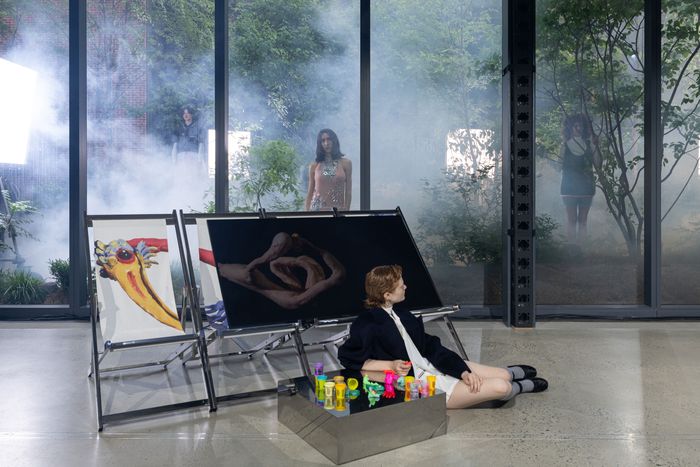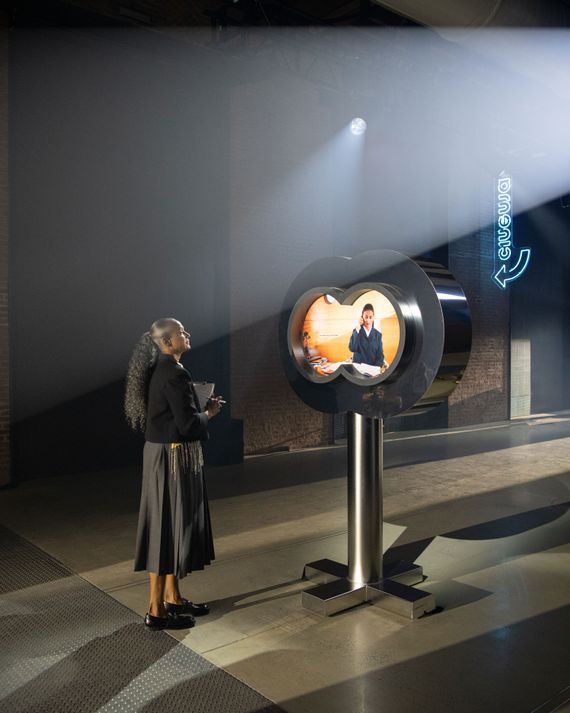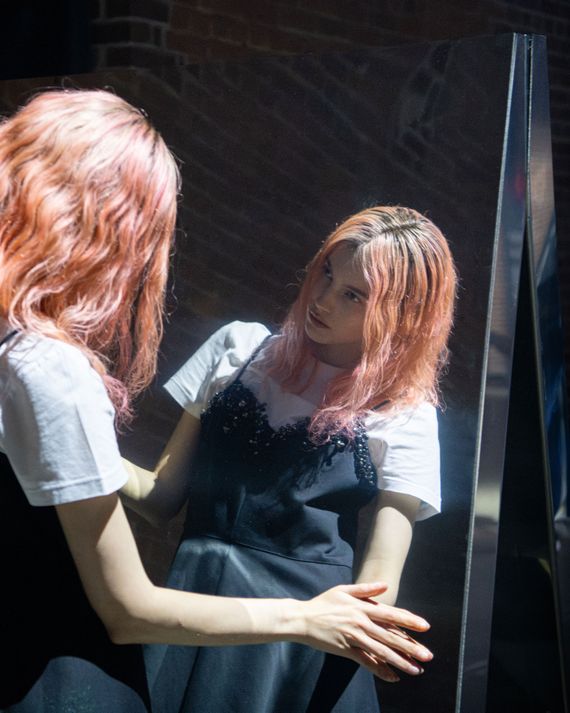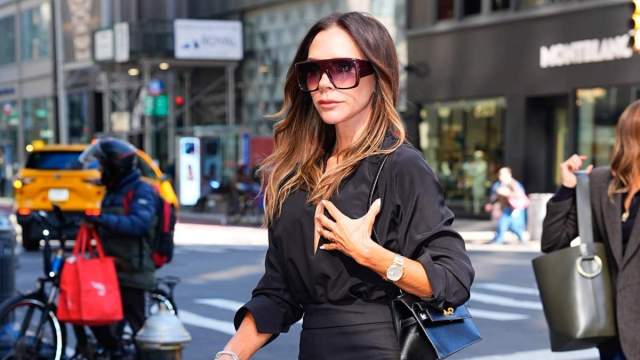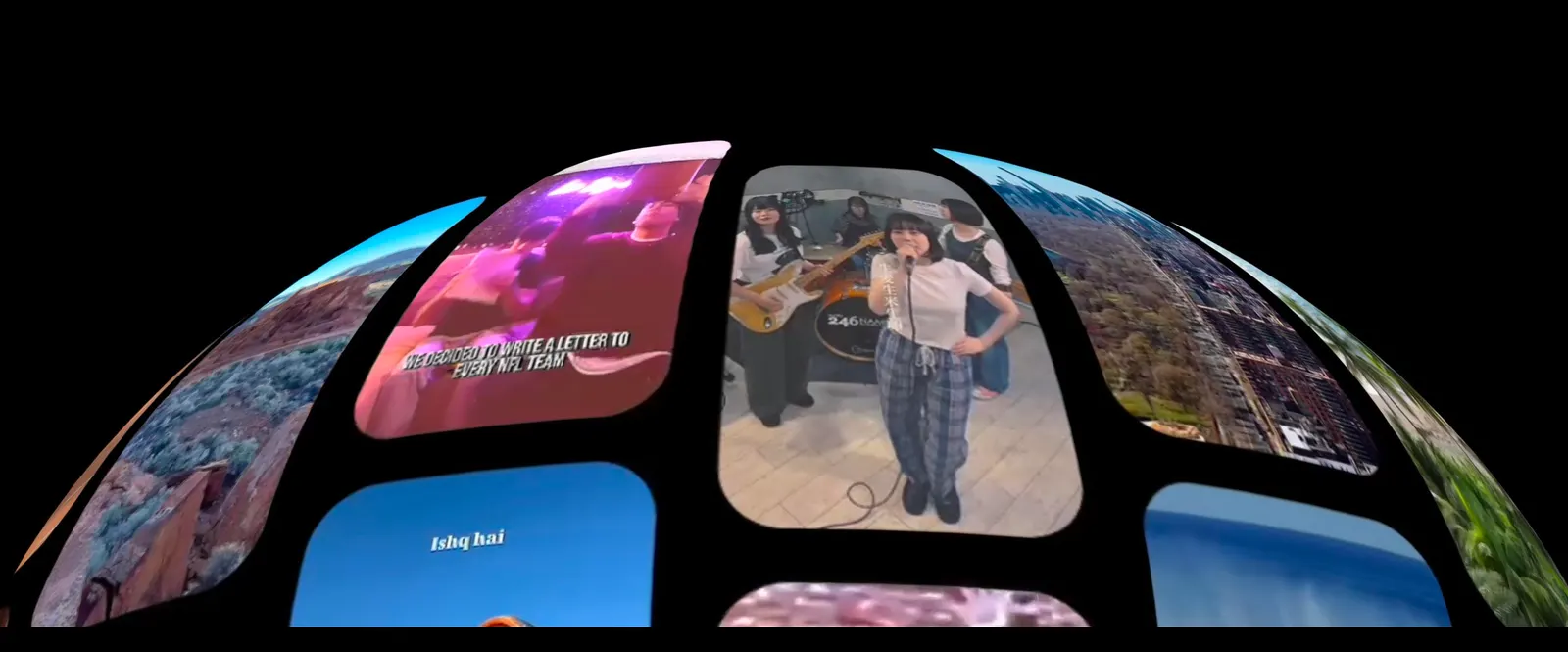The interiority of women’s lives has long been at the core of Miuccia Prada’s design practice. Miu Miu — Prada’s sister label, where the sister is preternaturally cool and rebellious — has been exploring this kind of feminine intimacy in a special way since 2011, when Prada herself began commissioning short films by incredible filmmakers, including Oscar nominee Ava DuVernay, Zoe Cassavetes, Janicza Bravo, and dozens of others. The collection is poignantly titled “Women’s Tales,” and these films have often been played at the brand’s fashion shows, where Miu Miu shows how the clothing and accessories are not just worn but experienced in different performative scenarios.
In October, Prada ushered in the next evolution of “Women’s Tales” by bringing all of the films together with the vision of artist Goshka Macuga at Art Basel Paris. With different characters from the short films taking center stage in their own immersive vignettes that tied back to the protagonists, the mesmeric performance brought onlookers into the Miu Miu multiverse in a whole new way. And on Friday, May 9, the show, called “Tales & Tellers,” opened at New York’s Terminal Warehouse before opening up to the public for two days over the weekend.
Photo: DANIEL SALEMI
“It changes every time it’s performed,” said Elvira Dyangani Ose, who chose the program’s curator with Prada and worked with the different teams that brought the show to life. Dyangani Ose is a longstanding visionary for Miu Miu and the art world at large, as a Fondazione Prada Thought Council member since 2015 and the current director of the Museu d’Art Contemporani de Barcelona. “I hope there will be a response to it, whatever it is, that won’t leave people indifferent.”
The preview evening’s intention was to gather the art, creative, and publishing glitterati after a whirlwind week that included the Met Gala and Frieze New York. A fashionable affair, where the hemlines were mid-length (as Prada likes) and every woman seemed to have on some version of a leg warmer, it was a chance for many who were already Miu Miu fans and collaborators to take stock of all the brand has been doing to support woman artists around the world.
Photo: DANIEL SALEMI
The show was one of the most comprehensive and thoughtful I’ve ever attended: an experience where you wanted to linger, reengage with moments to make sure there was nothing you missed, and talk with strangers to get their thoughts. The evening unfolded over time, which invited that kind of idling, but it was full of anticipation as you awaited each next scene. In this very meta way, I also became a character in it all with a model coming right up to me, speaking French, both sticking to her script and imploring me to participate.
The films were displayed in imaginative ways: on a tablet built into a skateboard, or a dress rack fashioned with iPads, or on a raised stage that doubled as a video player. You almost didn’t notice the clothes because they were so embedded into the cast’s performances, from a yellow sweater vest on a skateboarder whizzing past that just caught your eye, to a red embroidered Peter Pan–collar dress on a comedian making jokes about contraception and Jesus. This was an intentional choice, as Miu Miu wants us to engage with its clothing based on feelings and not just function. “Mrs. Prada has never been just a designer,” said Dyangani Ose. “She’s someone who has provoked through her way of seeing the world but also the way we feel as women when we dress in her clothes. To me, her perception is extraordinarily complex and her capability of talking about the contradictions of being a woman today is very interesting.”
Photo: DANIEL SALEMI
Choreographer Fabio Cherstich did an incredible job of striking the balance between show and substance, as any of the women could have just as easily been acting out their parts on a street in New York City and you might have looked right past them.
As for the importance of the exhibit, especially at a time when so many cultural institutions are losing public funding owing to the Trump administration, Dyangani Ose said, “Beauty is a political question, no doubt. We need to not only be aware, but we also need to take action so that we do not lose ground. One of my friends used to say artists are better equipped than historians to tell history because they tell it by the way it’s felt. Artists are the bravest.”

